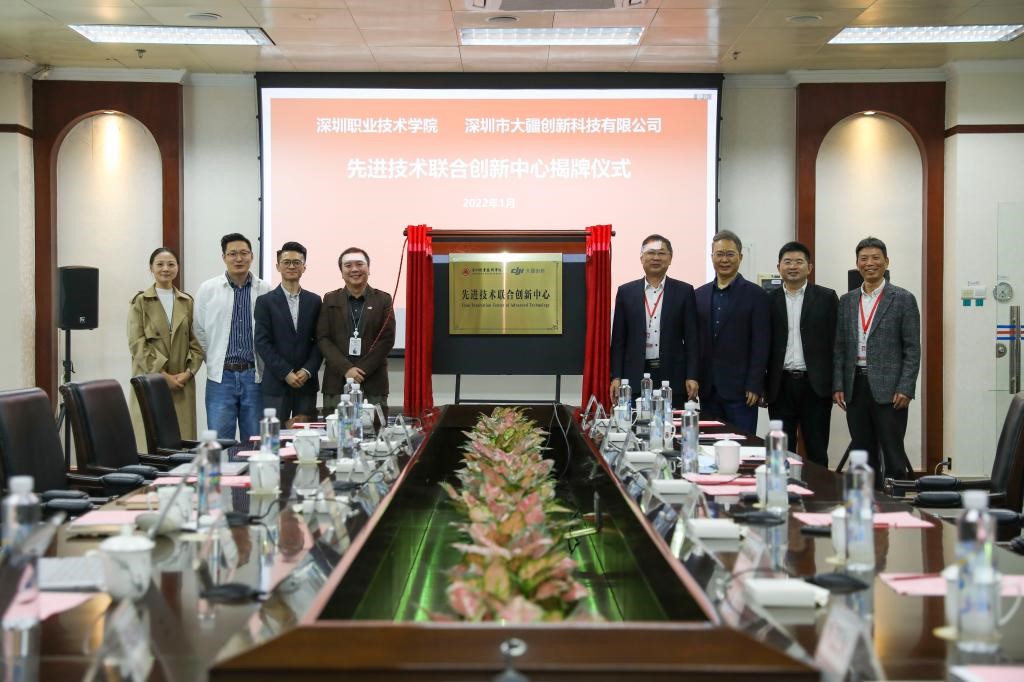
The opening ceremony was held in Conference Room 101, Mingde Building, Liuxiandong Campus
In the afternoon of January 21, the opening ceremony of the Joint Innovation Center for Advanced Technology co-built by DJI and Shenzhen Polytechnic was held in Conference Room 101, Mingde Building, Liuxiandong Campus. Zhu Linrui, Global General Manager of DJI Huifei Education, Yang Duo, Deputy General Manager of DJI Huifei Education, Yang Xinbin, Chairman of the Board of Shenzhen Polytechnic, Dong Chaojun, Vice-president of SZPT, and leader representatives of relevant departments and schools from the two sides attended the opening ceremony.
In his speech, Yang Xinbin stated that as the world’s leading R&D agency and manufacturer of unmanned aerial vehicle control systems and UAV solutions, DJI has sales and services in more than 100 countries and regions around the world. The co-building of the Joint Innovation Center for Advanced Technology is a concrete measure to fully implement the strategic cooperation agreement between DJI and our college, marking a new stage of our cooperation. It is hoped that the two sides will take the opportunity of co-building the research center to, based on the Guangdong-Hong Kong-Macau Greater Bay Area, step up efforts to tackle core technologies and carry out bilateral cooperation “centered at scientific and technological innovation and talent cultivation, focusing on technology application research and development, professional cooperation and resource sharing”.
As a next step, the two sides will conduct in-depth cooperation in the following three areas (including but not limited to): First, scientific research output. Work together to tackle major scientific issues in disciplines, jointly apply for major research projects and produce a number of high-level and contributing research achievements. Second, talent cultivation. Make use of resources and development capabilities of the two sides to jointly develop courses oriented to cutting-edge technology in artificial intelligence and integrate them into the construction of relevant majors. Further, carry out strategic cooperation on talent cultivation in respect of practical training for students, vocational skills competition and new apprenticeship system. Third, bench marking. By summing up the cooperation experience, form a school-enterprise strategic cooperation model that can be copied and popularized, set up a benchmark for the cooperation between vocational colleges and first-class enterprises, and build a model of school-enterprise resource sharing and mutual benefit.
(Office of Academic Research, School of Artificial Intelligence)
